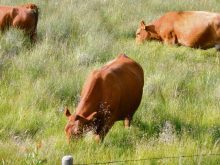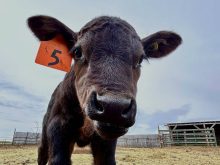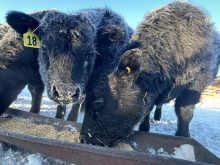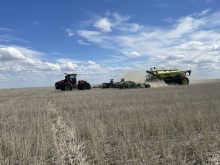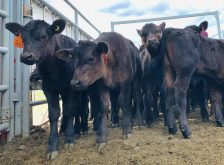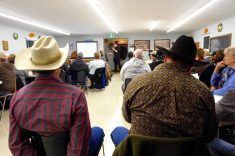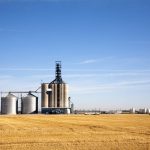They’re still trying to nail down what it means, but Canada is at the forefront when it comes to the global effort to create “sustainable” beef, according to the head of the Global Roundtable for Sustainable Beef.
“You guys are rocking when it comes to sustainability,” said Cameron Bruett. “You’re doing a fantastic job.”
Bruett is also chief sustainability officer with the U.S. division of JBS, the world’s largest meat company. The Brazilian giant partnered with the likes of McDonald’s, Walmart, Cargill, and environmental organizations such as the World Wildlife Fund to create the global roundtable.
Read Also
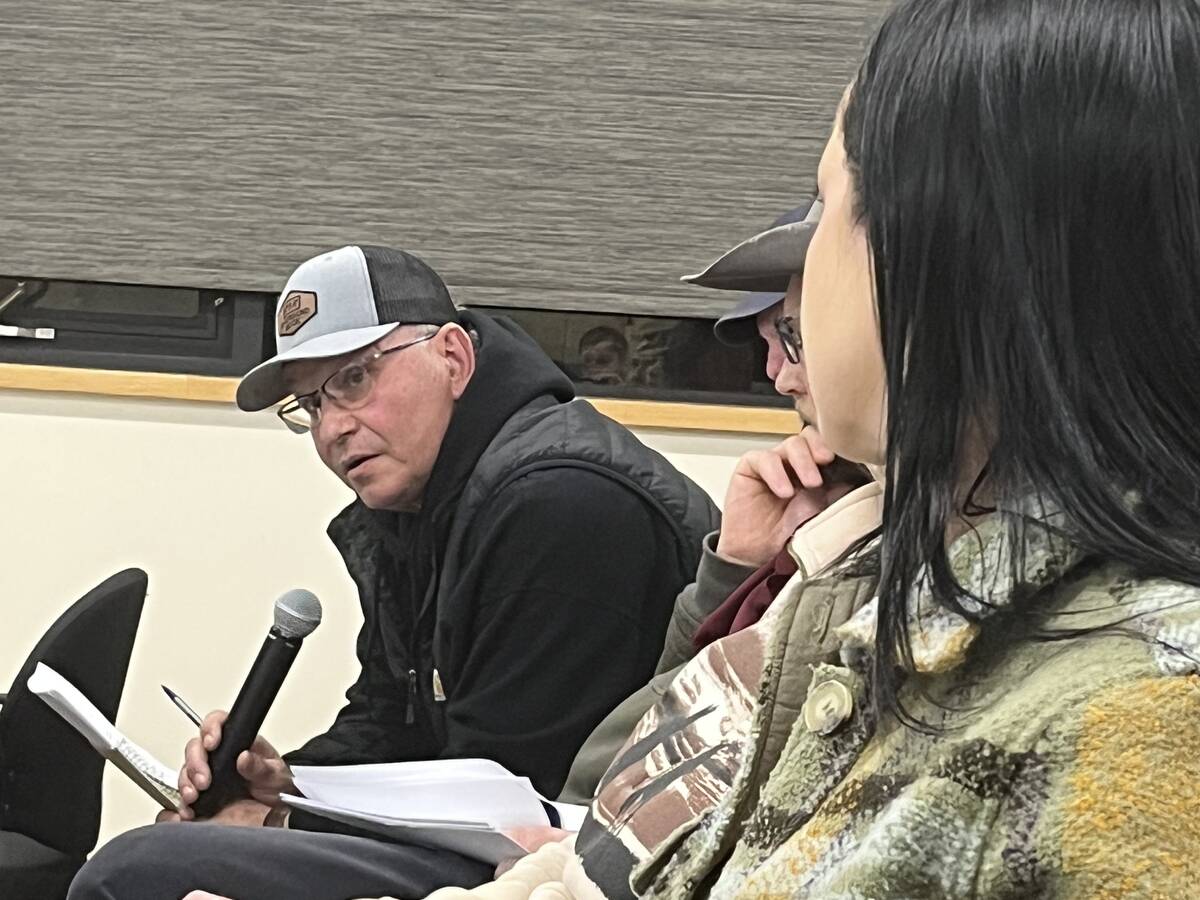
Clock ticking on Alberta grazing lease controversy
The MD of Taber faces a Feb. 24 deadline on a contentious grazing lease policy, as residents debate the future of 81,355 acres of native grassland.
The definition of sustainable changes with the person you ask, but it’s nevertheless a great opportunity for Alberta and Canada, Bruett told attendees at Future Fare, the annual conference of the Alberta Livestock and Meat Agency.
“Sustainability is a great issue for our industry because no one has the story to tell that we do,” he told several hundred attendees in a packed conference room at the Marriott River Cree Resort.
“There is no NGO (non-governmental organization), consumer activist, or mommy blogger who can say that they’ve done more for the environment than many of the people in this room.
“So you need to be proud about it and need to embrace that, and understand that when we talk about sustainability, it does not afford people the opportunity to isolate you on any one issue.”
The idea for a global roundtable was conceived nearly four years ago, but the notion of ‘sustainable beef’ captured headlines late last year when McDonald’s announced it would start sourcing beef verified as environmentally and socially responsible beginning in 2016. As reported in Alberta Farmer in May, the fast-food titan has since chosen Canada to pilot its sustainable beef project.
But the definition of sustainable is still being hammered out, said Bruett, who is based in Greeley, Colorado.
“When we talk about sustainability, environmental is a strong pillar that needs to be addressed, but it’s only one of three,” he said. “We have to consider the economic and the societal. We need to understand the impact of what the demands placed on these operations can do to a rural community.”
And while cattle-raising methods differ greatly around the world, any beef system can be sustainable if done properly, Bruett said.
“It is not about picking winners and losers,” he said. “It is not about saying, ‘My ranch is sustainable, but my neighbour’s is not.’
“It’s a continuum. You never achieve sustainability. You never wake up in the morning and say, ‘What I do is sustainable and I can call it a day, and I never have to worry about that anymore.’”
- More from the Alberta Farmer Express: Beef sustainability benchmark study to be ready by fall
The challenge is that the average consumer thinks sustainable agriculture means a return to the small mixed farms of the distant past, he said.
“There is a separation between agriculture and the consumer. The modern-day consumer has not participated in the journey and the technological innovations that we have enjoyed and experienced in agriculture.”
For example, consumers frequently send signals they don’t like technology in agriculture — but modern farming practices are essential to feeding the planet, said Bruett.
To further complicate things, marketers tend to promote organic as sustainable.
“In its simplest terms, sustainability means producing more with less,” said Bruett. “There’s nothing wrong with organic — but organic produces less with more. So why is that equated with sustainability?”
While some think grass-fed beef is more environmentally friendly, the carbon footprint is actually reduced by having animals fed in intense operations, he said.
“They’re producing methane for a decreased amount of time, they’re more efficient and producing more pounds per animal, so it’s actually a sustainable system,” he said. “Not to say that grass fed cannot be sustainable, or that we don’t need grass fed to meet the challenges of tomorrow. But we have to be careful when we’re defining sustainable and equating it with niche systems.”
All of these issues, and others, are being worked on as the global roundtable heads towards a global conference to be held in November in Sao Paulo, Brazil. Core principles involve natural resources, people and community, animal health and welfare, food, efficiency and innovation. Because of Canada’s efforts (notably on traceability, the Verified Beef Program, and the effort to marry the two via the BIXS 2.0 initiative), Bruett said he chose Calgary as the site for working groups to meet on June 24-25.
Increasingly, sustainability is becoming a tool to differentiate your system and be more productive on that international global market scale,” he said. “We wanted to come up and acknowledge the great work of the Canadian Roundtable for Sustainable Beef, and let this be the place where we redefine that definition. I think that sends a strong message.”
It will also be vital for beef producers, processors, and retailers to speak out and not leave themselves open to attacks from radicals and activist groups, he added.
“They don’t want conventional agriculture, the use of antibiotics or implants or hormones,” he said. “They don’t want anything technological that allows us to do more with less. They want to impose their will on the rest of the chain.”
Retailers and restaurant owners — fearful of losing market share or having their brand tarnished — are sensitive to these vocal radicals, he said. So the beef industry needs to be vocal, too.
“When you hear a radical claim or group, understand that this is not a representation of a huge swath of consumers around the globe. But we have a message too, and we have a message that resonates with the vast majority of the population. And we need to start articulating that message to drown out that noise we hear.”
He applauded companies such as McDonald’s and Walmart for promising to start sourcing sustainably, and create programs with environmental criteria.
“You can see the commercial marketplace is taking on sustainability, particularly in beef, to transmit positive messages to consumers, so that when they go and buy their Big Mac or their all-natural beef, they feel confident that they are consuming a product which respects societal impacts and the environmental footprint,” he said.
But Bruett emphasized the guidelines won’t impose change on the beef industry and will allow all beef-producing areas in the world to tailor the criteria to its individual system.
“We realized we could not come up with a global standard, or a global certification that would be applicable to every beef production system on the planet,” he said.
“We want to set these broad terms — these objectives and criteria and how you go about addressing them — in the manner that makes sense for Albertans, for Canadians (so they can) be determined by you. This is an empowerment exercise, not a global fiat.”




